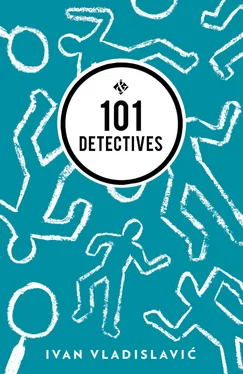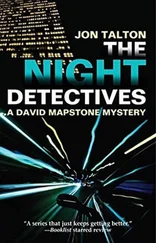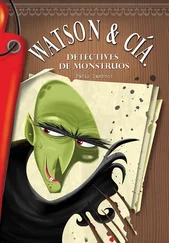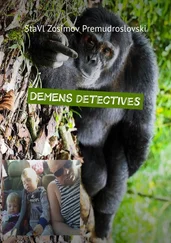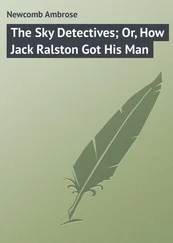Ivan Vladislavic - 101 Detectives
Здесь есть возможность читать онлайн «Ivan Vladislavic - 101 Detectives» весь текст электронной книги совершенно бесплатно (целиком полную версию без сокращений). В некоторых случаях можно слушать аудио, скачать через торрент в формате fb2 и присутствует краткое содержание. Год выпуска: 2015, Издательство: And Other Stories Publishing, Жанр: Современная проза, на английском языке. Описание произведения, (предисловие) а так же отзывы посетителей доступны на портале библиотеки ЛибКат.
- Название:101 Detectives
- Автор:
- Издательство:And Other Stories Publishing
- Жанр:
- Год:2015
- ISBN:нет данных
- Рейтинг книги:4 / 5. Голосов: 1
-
Избранное:Добавить в избранное
- Отзывы:
-
Ваша оценка:
- 80
- 1
- 2
- 3
- 4
- 5
101 Detectives: краткое содержание, описание и аннотация
Предлагаем к чтению аннотацию, описание, краткое содержание или предисловие (зависит от того, что написал сам автор книги «101 Detectives»). Если вы не нашли необходимую информацию о книге — напишите в комментариях, мы постараемся отыскать её.
and
, invites readers to do some detective work of their own. Each story can be read as a story, but many hide clues and patterns. Whether skewering extreme marketing techniques or constructing dystopian parallel universes, Vladislavic will make you look beyond appearances.
101 Detectives — читать онлайн бесплатно полную книгу (весь текст) целиком
Ниже представлен текст книги, разбитый по страницам. Система сохранения места последней прочитанной страницы, позволяет с удобством читать онлайн бесплатно книгу «101 Detectives», без необходимости каждый раз заново искать на чём Вы остановились. Поставьте закладку, и сможете в любой момент перейти на страницу, на которой закончили чтение.
Интервал:
Закладка:
When the Parakeet drew closer, the dancing became wilder, as if the day trippers wished to show the landlubbers how much fun they’d been having. The captain, a dreadlocked kid in a piratical headscarf, brought them close to the beach, almost in among the swimmers, and then swept out in a wide circle, extending the trip by five minutes, marketing his services. Even before they’d cast anchor, some of the more boisterous dancers plunged into the water and swam for the shore. The others milled around on the deck, showing off their sea legs, waiting to be ferried in on the dinghy bobbing at the stern.
A strange tension crackled between the new arrivals on the terrace and the old hands on the boat. The tourist’s timescale is finely calibrated: a single day is the difference between innocence and experience. The people on the boat seemed browner, saltier, happier. We watched them with envy as the party at the Sandbar faltered. The catamaran had reminded a few among us that there were meals to eat and brochures to read, and they began drifting off. My thoughts turned to my plans for the next day. I said goodnight to Martha and Eckie and went to my room.
I saw them again sooner than I expected: in the morning they were on the shuttle bus to Port Louis. They were heading down to Black River so that Eckie could go parasailing. Tomorrow, he said, they might do the catamaran cruise, and the day after that snorkelling. And then there was walking on the ocean floor in a diver’s helmet. She caught my eye while he prattled on and quirked the corner of her mouth as if to say: humour him, he’s young.
Nearly every seat was taken — tourists on the way to one attraction or another, I discovered as they swapped notes. In Triolet we picked up a housekeeper carrying a bucket full of brushes and a feather duster, and I felt a twinge of solidarity with this woman who also had a job to do. I was going to the factory in Floréal.
I sat behind Martha and Eckie on the bus. Something about the heat and the closeness, the sense of being confined among strangers, made me overly aware of their presence. It was almost as if I were seeing some magnified version of them. I remember looking at the sea chart of her freckled shoulders and the bite marks on the earpieces of her sunglasses. He was wearing a cap, and a tuft of hair like a shaving brush stuck out through the hole at the back. I imagined that the passenger behind me, a German woman who couldn’t stop taking photographs, was paying the same exacting attention to the back of my head, watching an enlarged bead of sweat run down inside my collar.
Before long we fell into a drowsy silence. Even the German’s shutter blinked and closed. On the long, straight road out of Triolet, Eckie’s head dropped and jerked a couple of times, and then he leant over and laid his head on his mother’s shoulder. She put her arm around him and drew him close. She let him sleep that way for half an hour, scarcely moving so as not to wake him.
When the bus stopped on the outskirts of Port Louis to let off the housekeeper, Eckie awoke with a start. Sleep had wiped the features of the man from him entirely: his face was as soft and round as a boy’s. He stretched and yawned. Then we saw it. Perhaps he noticed it first or perhaps I drew his attention to it by leaning over the seat for a closer view. In any event, we looked at it together. On the soft, freckled flesh of his mother’s shoulder, where his head had been resting, was a perfect impression of his ear. He cried out in amazed delight. She dipped her shoulder to see what was causing the excitement. It was strange. The shape of his ear, perfect in every ridge and whorl, seemed to have been carved on her body. She rubbed at it, as if she could smooth it into her skin like a dab of suntan lotion, but it persisted in clear relief. Soon everyone was admiring it and laughing, amused or intrigued. The blood rose in Martha’s neck. I cannot say why, but this odd, displaced organ embarrassed her. I cannot explain my response either: my stomach heaved.
It took five minutes to fade away, slowly losing definition like a waxwork in the sun. Once the commotion had passed, Martha and Eckie began to joke and giggle quietly, both of them flushed and radiant. He kept running his fingertips over the carved skin, discovering his own flesh in hers, again and again. When the image was almost gone, he bent down to it and whispered a secret into her body.
Soon afterwards, they got out. I was relieved. I put aside the briefcase I’d been holding on my lap, stretched my legs into the empty space, and tried to think about other things.
You know that I saw them again. We haven’t had the unhappy ending yet.
The following afternoon, I was reading on the verandah when I saw the Parakeet coming in. It was earlier than usual, but that only occurred to me afterwards. What struck me at the time was the silence. No reggae or chatter, just the chug of the engines and the passengers hunched on the deck. The simple explanations — bad weather, spoilt food — did not cross my mind. A dark stain in the air made me go to the railing and watch the boat come closer. It seemed to me to be lying heavily in the water. There were no showy zigzags or loops; it nosed straight in among the swimmers, the captain cut the engines, and his mate threw the anchor overboard.
Then a sound rose from the deep and flayed the skin from the backs of my hands. It was coming from a woman in the bow, and I saw that it was Martha, slumped over a bright, shrouded shape. Her cries broke into the sunlight one by one, ragged and raw, like creatures torn out of her on a hook.
All along the beach, people splashed out of the water, knees up, as if a fin had been spotted in the shallows. I saw Harry the barman running down to the boat.
The passengers came ashore. Some of them went away at once, others clung together on the beach, talking among themselves and then to the people getting up from their deckchairs and towels. Martha still sat in the bow with the captain beside her, weeping quietly now, while the sun clanged on every surface.
I should go and speak to her, I thought, comfort her. We’ve made a connection. But I couldn’t face it.
When Harry came up to the hotel, I followed him to the Sandbar and found him pouring rum into a dozen glasses on a plastic tray. He told me the story. The Parakeet had anchored off Coral Point as usual. While the crew prepared lunch, the snorkellers did as they always do, floating out into the water at the end of the beach and letting themselves be carried back on the current. I remembered it myself: you hardly needed to swim, you just lay on the tide, drifting, suspended between two worlds, with the sun on your back and your face pressed through the surface of the water into another dimension. No one knew whether a sudden current had turned Eckie in under the boat or whether he’d decided to swim beneath it. He’d been caught in a tangle of lines between the hulls and drowned. By the time his absence was noticed, it was too late. The captain dived in and cut him loose, and they hauled him onto the beach and pumped his chest for an hour. Even after they’d gone on board and turned the boat towards home, they went on trying to make him breathe.
But what about Martha? I asked. Didn’t she see that he was in trouble?
She was sleeping, Harry said. She had sat down in the shade against the dunes, watching Eckie in the water. I imagined him floating on the current, rolling over now and then to find her on the shore. ‘Look at me! Look at me!’ She stretched out with her head in the shade for a moment, she said, just for a moment, and she must have dozed off. When she awoke, the captain was already in the water with the knife in his hand and the boy’s body dragging. She thought her son had been murdered.
Читать дальшеИнтервал:
Закладка:
Похожие книги на «101 Detectives»
Представляем Вашему вниманию похожие книги на «101 Detectives» списком для выбора. Мы отобрали схожую по названию и смыслу литературу в надежде предоставить читателям больше вариантов отыскать новые, интересные, ещё непрочитанные произведения.
Обсуждение, отзывы о книге «101 Detectives» и просто собственные мнения читателей. Оставьте ваши комментарии, напишите, что Вы думаете о произведении, его смысле или главных героях. Укажите что конкретно понравилось, а что нет, и почему Вы так считаете.
